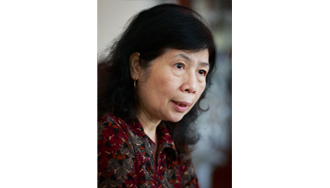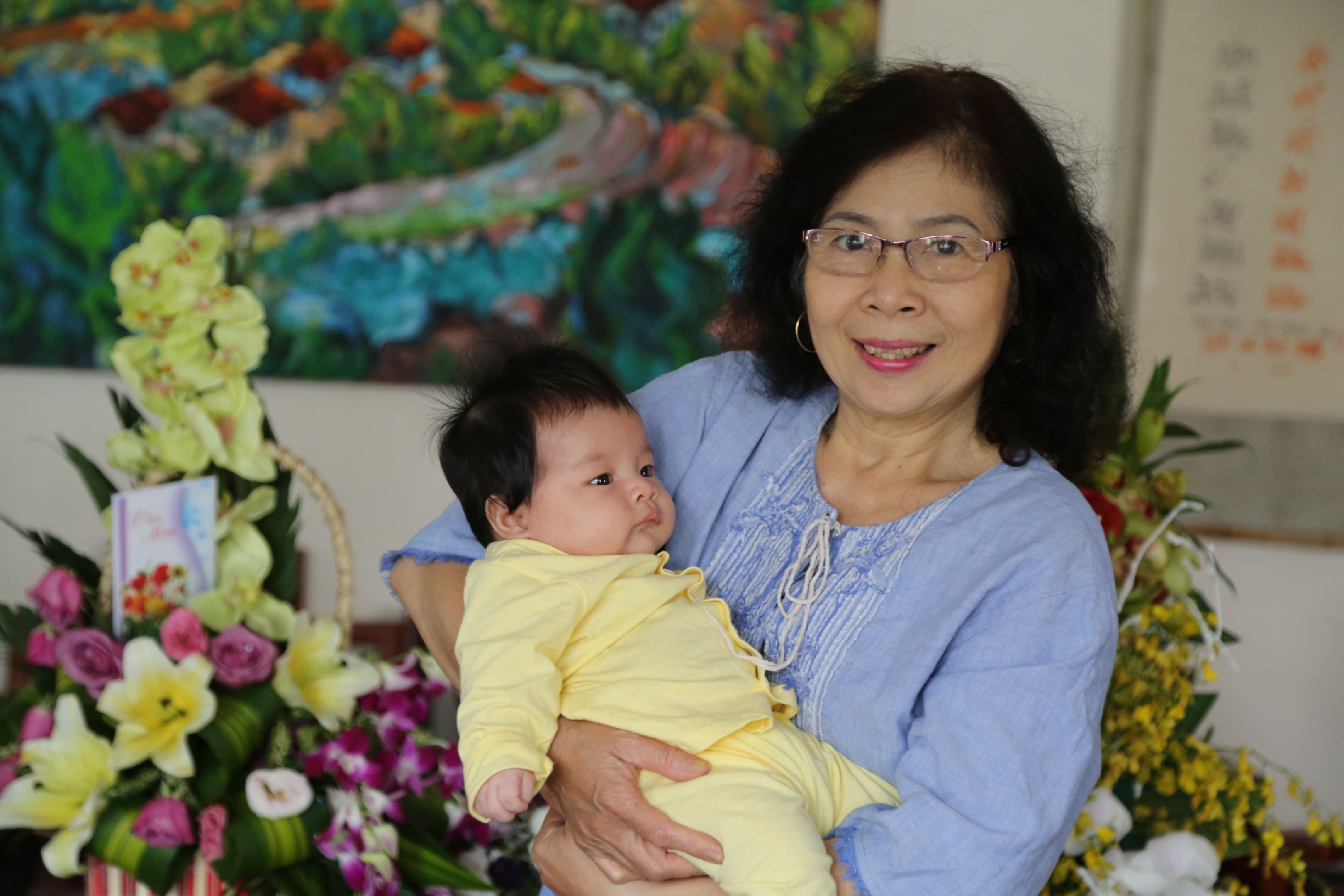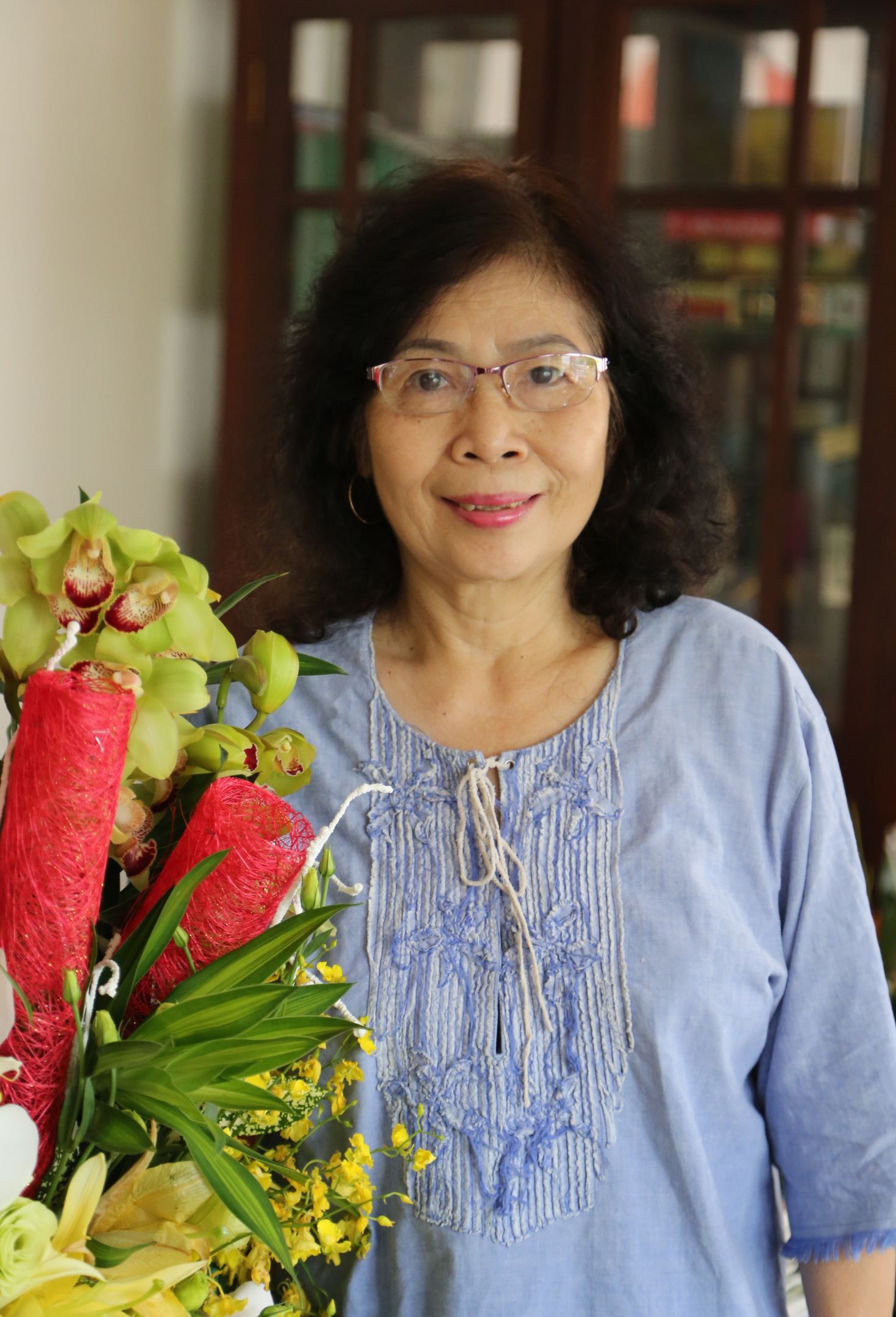
In Vietnam, Professor Le Thi Quy is also a leading scientist in the fields of research and teaching on Gender Science, Feminist Theory, Family Studies, and Family Sociology..She has made important contributions to the development of the Law on Domestic Violence Prevention and Control in 2007 and other laws related to Gender such as the Law on Gender Equality, the Law on Marriage and Family. In the context of family research in our country being quite new, the workFamily studies(Political Theory Publishing House, 2007; reprinted in 2009) - by Professor Le Thi Quy and Professor Dang Canh Khanh - is the first book to introduce the concept of Family Studies as a specialized science in Vietnam. The book is considered a sophisticated scientific work, systematically systematizing research onFamily studiesin the world and in Vietnam; at the same time, it presents and analyzes many valuable documents on the current state of Vietnamese families from feudal society to modern times that the authors have painstakingly researched for more than 10 years. Approaching from the perspective of Sociology, History, Ethnology, and Cultural Studies in both theoretical and practical aspects, the work addresses many issues of contemporary Vietnamese families: structure, scale, characteristics of modern families, personal - family - social relationships, family and education issues, gender and family issues in ethnic minorities, children in poor families, mother-in-law - daughter-in-law relationships, deviations in family values, domestic violence, divorce issues, promoting the role of families in the community and society...
Meeting Professor Le Thi Quy in real life, everyone is surprised by the agility, youthfulness, decisiveness and enthusiasm of a female scientist at the age of 65. When asked about the research topic of Gender and Feminism, she can talk enthusiastically for hours without getting bored or tired. Especially, when talking about models of domestic violence prevention in Thai Binh and Nam Dinh - which have received attention and support from the community and society because of their humanity and effectiveness - the female professor's voice always contains feelings of regret and sadness at this situation in many localities that is still not under control. Sympathizing with people of the same sex who have to endure many disadvantages in life, she shared her feelings of anger and heartache at the crimes of violence against women that she witnessed with her own eyes in some places, especially in rural areas. Thanks to that deep sensitivity and empathy, Professor Le Thi Quy, who was a student, then a doctorate in History, and a reporter for the Vietnam News Agency, was destined to teach and research Sociology, especially in the field of Gender, forcing her to touch and come into contact with thorny issues in life such as: violence against women, prostitution, trafficking of women and children...
Scientific research is a hard work and requires passion, perseverance, and even many sacrifices to achieve results, which is completely true in the life of Professor Le Thi Quy. With a determined, active, and active personality, born into a Confucian, disciplined family, growing up in a country at war, she soon had a sense of independence, knew how to accept the situation, and always tried to overcome difficulties. Since childhood, she loved to study, especially good at Literature and History. When she became a student at Hanoi National University, she majored in History - a choice that she still feels is correct. Studying History at one of the country's leading scientific cradles with famous teachers has helped her gain a solid foundation of knowledge, a correct outlook on life and the world, and an objective, multifaceted, and in-depth view of things and phenomena in life. These are important factors for success in any career.
The path for a researcher and practitioner of Sociology to always live with all their heart, enthusiasm and responsibility for all work, with Professor Le Thi Quy also has many memories. She said, in 1972, when she became a reporter for the Vietnam News Agency, permanently based in Hai Phong, one time on the way to get news in Thuy Nguyen district, early in the morning she cycled past a small, crowded market, filled with laughter. In the evening, after crossing the river to return, passing by that market again, she was frightened. The small market was devastated by American bombs. Before her eyes was only a field full of corpses of innocent market-goers. Mats were made to cover the corpses, surrounded by incense smoke. The sound of mourning and wailing was so loud and sorrowful. Hatred made her unable to cry, her throat was so tight that she could not eat for many hours after that.
Many years later, she is still haunted by the brutal images of the war. Her heart feels tight and painful, but she cannot cry. Her love for her countrymen and those haunting memories ignite in her a desire to fight for equality and justice through her own writing. At such a young age, experiencing the boundary between life and death, she feels more clearly many levels of emotions. She said: Life has taught a woman like me to always be resilient and find ways to overcome difficulties, but it has also taught me to love and feel sorry for unfortunate fates.

Professor Le Thi Quy is a scientist with a strong voice promoting the birth of laws to protect women; at the same time encouraging and supporting women to overcome difficulties and seek happiness for themselves and their families.
A turning point came to the life and career of Professor Le Thi Quy in 1975, after the liberation of the South, she and her family moved to Ho Chi Minh City and worked at the History Department of the Institute of Social Sciences in Ho Chi Minh City. During this time, she not only studied History but also began to come into contact with Sociology through her life partner - Professor Dang Canh Khanh (former Director of the Institute of Youth Studies).
The period 1977 - 1981 was a difficult time for the whole country, especially for intellectual families. Despite the lack of material things, she still endured, overcame and persevered with science. The couple's salary was only enough for simple meals of vegetables and pickles. Her husband taught extra classes, she wrote library vouchers to cover her food and clothing expenses. There were days when there was no food. She used to sit from morning to night in the library with a very hungry stomach. But it was during these years that she began to conduct her first research on prostitution in Saigon.
Overcoming the difficulties of life with a resilient spirit, in exchange for years away from her family, husband and children, she went to the Soviet Union to do research and received a PhD from the Academy of Sciences in 1989. Returning to Hanoi, she was assigned to work as an Editorial Secretary.Science and Women Magazinebelonging to the Center for Women's Studies (Vietnam Social Sciences Committee). It was during this time that she was surprised to find that somewhere in a socialist country like Vietnam, there were still many women brutally beaten by their husbands, while they just silently endured; many women were trafficked, forced into prostitution. She did not believe that was their fate. She learned more about prostitution, trafficking of women and children, domestic violence which were considered "sensitive" issues that no one wanted to deal with at that time... and realized the connection between these problems into a cruel circle in the lives of many women. In the 90s of the last century, these were issues that were not easy to approach and exploit. At that time, when pursuing this research direction, she encountered many difficulties such as obstruction from many sides and lack of cooperation from the victims themselves. During this time, she often cycled to the Loc Ha rehabilitation center in Dong Anh, directly to the areas that were hotspots of prostitution in Hanoi to interview and collect information about research subjects - a spirit of self-sacrifice and perseverance that not every scientist dared to accept. It was this spirit of self-sacrifice that helped her achieve initial success in making prostitution a scientific research issue and contributing many solutions to the National AIDS Prevention Committee, the Ministry of Labor, Invalids and Social Affairs at that time. Then there were studies to prevent domestic violence in Hanoi, Phu Tho, Thai Binh, Nam Dinh, Thua Thien Hue and other provinces. These community-based models, using the strength of the community to combat domestic violence, were later multiplied in a number of other localities...

Her life and scientific activities are a source of inspiration for many women.
In 1996, together with a number of Dutch, Cambodian and Thai researchers, Professor Le Thi Quy was the first to implement a project onPreventing cross-border trafficking of womenin Vietnam. The result of the project is the constructionIssues of cross-border trafficking of women and childrenpublished in 2000, and soon after, the topic of human trafficking was brought up for discussion at many official national and international conferences. At the same time, plans to protect and help victims of human trafficking integrate into the community and stabilize their lives began to be put forward throughout society.
Thanks to her pioneering and resounding research on gender equality in Vietnam, since 1992, she has been invited by UNESCO, UNIFEM and many countries to attend conferences, research, give presentations, and by the Fulbright Foundation to lecture at Clark University (Massachusetts) in the US. In 2005, she was one of 1,000 women in the world nominated for the Nobel Peace Prize. Up to now, she is a prestigious and familiar scholar of Vietnam at many international forums and scientific events on the topics of Gender, Feminism, Social Work... In 2010, she became the first female professor of Sociology. But perhaps few people know that it was not until she was 40 that she started to learn the first words of English. Before achieving success, she also experienced stumbles and struggles with her own discouragement after a few presentations were "failed" because she did not have enough English to express herself; The nights staying up late, having to drink strong tea to overcome sleepiness and write; the times traveling all the way to Viet Bac, Tay Bac, Tay Nguyen to research and present to the community; the times being tired but still trying to go to the lecture hall… These are not always easy hurdles to overcome for Vietnamese scientists who want to improve their capacity and integrate internationally. But it is the quality of perseverance, not being afraid of difficulties, hardships and always facing the difficult problems of science that has helped her succeed despite the difficulties in life.
In addition to her remarkable achievements in science and social activities, Professor Le Thi Quy also has a truly happy family. It is a family where many generations have participated in scientific research, and more or less all have left behind achievements. Perhaps that is what has contributed to the wings of a seemingly "weak" woman like her to dare to "commit" her whole life to the struggle for gender equality for women.
|
PROFESSOR, DOCTOR LE THI QUY
+ Work unit: Faculty of Sociology, University of Social Sciences and Humanities. Center for Gender and Development Studies, University of Social Sciences and Humanities. + Management position: Director of the Center for Gender and Development Studies (2002 - 2013). Director of the Institute for Gender and Development Studies, Vietnam Union of Science and Technology Associations (2013 - 2015).
The problem of preventing women trafficking in Vietnam, Labor - Social Publishing House, 2000. Domestic Violence - A Value Distortion(co-authored), Social Sciences Publishing House, 2007. Prostitution, perspectives and solutions(editor-in-chief), published by the Ministry of Labor, War Invalids and Social Affairs, 2000. Family studies(co-authored), Political Theory Publishing House, 2007. Gender Sociology Textbook, Vietnam Education Publishing House, 2010. Family Sociology Textbook, Political - Administrative Publishing House, 2011. |
Author:Thanh Ha